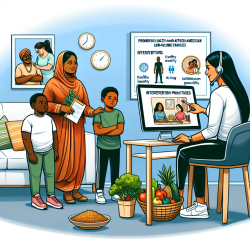In the quest to enhance language assessment for Northern Sotho-speaking children, the study "Identifying phonological processing deficits in Northern Sotho-speaking children: The use of non-word repetition as a language assessment tool in the South African context" provides crucial insights. This blog aims to help practitioners implement the findings from this research to improve their assessment practices.
Understanding Non-Word Repetition (NWR)
Non-word repetition (NWR) tasks are a reliable measure of phonological processing abilities. They require children to repeat pseudo-words that follow the phonotactic rules of a language but are not actual words. This method minimizes biases that arise from a child's prior linguistic exposure, making it a valuable tool for assessing phonological working memory (PWM).
Key Findings from the Research
The study conducted with 120 third graders in Pretoria demonstrated that the Northern Sotho NWR task (NS NRT) could effectively differentiate between children with strong and weak phonological processing skills. Key findings include:
- NS NRT scores were normally distributed, indicating its effectiveness in measuring a range of phonological processing abilities.
- Performance on the NS NRT correlated with other measures of PWM, such as digit span and English NWR tasks.
- The NS NRT was positively associated with both word reading and fluent reading in Northern Sotho, reliably predicting reading outcomes.
Implementing NWR in Practice
To incorporate the findings from this study into your practice, consider the following steps:
- Adopt NWR Tasks: Use NWR tasks as part of your language assessment battery to evaluate phonological processing skills in Northern Sotho-speaking children.
- Monitor Reading Skills: Regularly assess reading abilities alongside NWR tasks to identify children at risk of reading difficulties.
- Enhance Task Complexity: Improve the current NWR tasks by including longer and more complex non-words to better differentiate between varying levels of phonological processing abilities.
Encouraging Further Research
While the study provides a solid foundation, further research is essential to refine NWR tasks and validate their effectiveness across different age groups and linguistic backgrounds. Practitioners are encouraged to collaborate with researchers to develop standardized NWR tasks for various African languages.
Conclusion
Non-word repetition tasks hold significant potential for improving language assessment in Northern Sotho-speaking children. By implementing these tasks, practitioners can better identify phonological processing deficits and support children in achieving better language and literacy outcomes.
To read the original research paper, please follow this link: Identifying phonological processing deficits in Northern Sotho-speaking children: The use of non-word repetition as a language assessment tool in the South African context.










